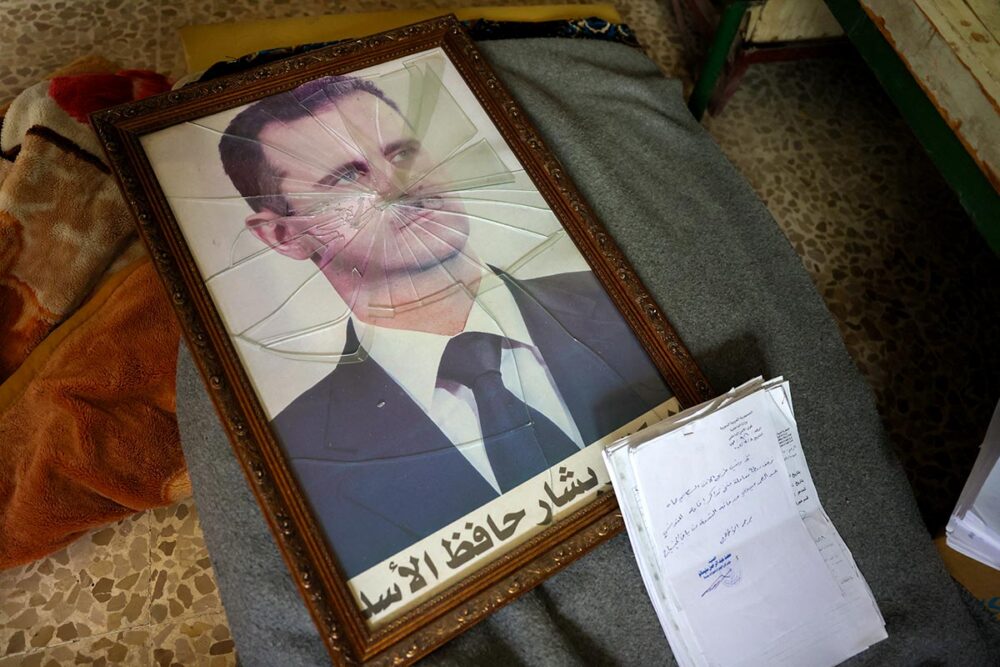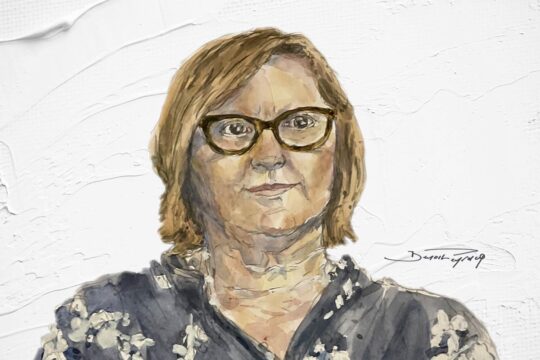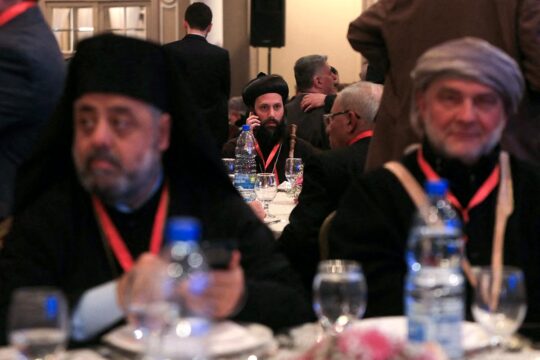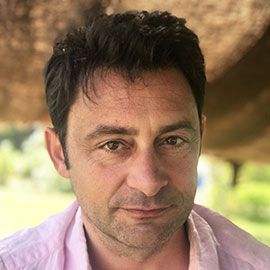JUSTICE INFO: “We will not hesitate to hold accountable the criminals, murderers, security and army officers involved in torturing the Syrian people,” rebel leader Abu Mohammed al-Jolani, said on Tuesday December 10 in a statement. How does this comment from the leader of the coalition that ousted Syrian president Bashar al-Assad less than a week ago, sound to you, after more than a decade of fight for justice from abroad?
Anwar al-Bunni: He [al-Jolani] simply cannot do that, and we shouldn’t accept to deliver any criminal to him, as we cannot be sure that there will be fair trials. They deserve and we deserve to have fair trials to expose all the truth about what has happened. This can only come after we set up a transitional government that will represent all Syrians, with all the different ethnic groups, religions, and with women as well. Then we will be able to set up a transitional justice forum.
This must include courts, in Damascus and maybe in other cities, and these courts should mix Syrian and international judges, to be sure that the court will be following international standards, and that there will be no death penalty. Besides that, we need to pay reparations for the victims, to establish a peaceful society, to make memorials, expose the truth, prepare new laws… There are many things to work on, so it’s not about what al-Jolani says.
So until now, the work you have done in Europe remain the most relevant?
Until now, yes, it’s still the most important part. We will continue this work since there are many criminals here in Europe, and maybe more will come, after they run away from Syria.
For instance, there are still cases submitted to the German Federal prosecutor in Karlsruhe, targeting 25 high-ranking Syrian officers, including Bashar al-Assad himself. There are cases submitted in Sweden, targeting several high-ranking officers, in the security services and in the army. There are cases submitted to the Norwegian prosecutor. Now, we think that all arrest warrants should be issued publicly against all of them.
Besides, a trial took place in France six months ago with a verdict [in absentia] against Ali Mamlouk [the former head of the National Security Office], and Jamil Hassan [the former head of the Air Force intelligence service] where they were sentenced with life for crimes against humanity. There is also an arrest warrant in France against Bashar al-Assad himself for the use of chemical weapons in Douma in 2013. As you know, we are tracking many criminals here in Germany, in Sweden, in the Netherlands, in Belgium, in Austria, in France, and there were trials against some of them – with maybe the most famous one in Koblenz against Anwar Raslan who was an officer of the Damascus state security branch 251. So, yes, in Europe, there are many people who have been arrested, and new trials will soon happen.
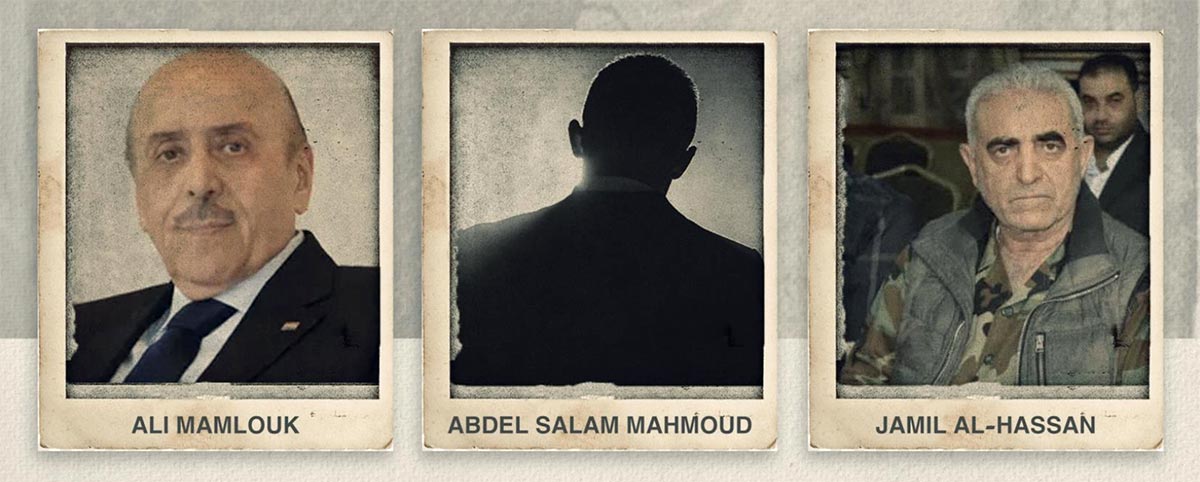
Do you think all that will accelerate with the fall of Bashar al-Assad?
Sure. There are cases we are working on -we cannot speak about the specifics of where or how-, but when the suspects will be arrested, we will publish about it. It’s coming. We have been working on these for a long time. Some of them are still in Syria right now, some of them are out of Syria, we will figure out where they are, and we will follow them wherever they will go. They will be facing justice.
Most of them have left Syria. For instance, we know that Ali Mamlouk has run away to Lebanon, and he took a flight to go to a European country, as we have learnt until now, but we will chase him. Eventually, we’ll find them all.
If you go back to Syria, what would be your priorities?
My priority would be to establish our Center in Damascus and publish information on human rights, document the violence, help people to reach democracy, to get educated about the rule of law. These are my hopes today about what I could do in Syria. I’ll go back to Syria. It’s our duty to rebuild Syria, but we still have a lot of things to do here in Europe.
We know that more than 100,000 Syrian detainees were killed under torture. The people don’t want to believe it; they are still looking for their relatives, and they are right. They killed them, they put them in the acid, they crushed them with hydraulic machines. It’s crazy, but that’s the reality. This week, TV crews went to the Sednaya prison:everybody saw how they threw the bodies and make them disappear, vanish. Right now, we have also a team in Syria, and we try to collect as much information as we can from the former regime’s archives.
Beside in Koblenz, a witness also spoke about how they took bodies and put them in mass graves. We have known this for a long time. It’s all recorded by state security, with orders from the National Security Bureau and from Bashar al-Assad himself. We already have documented that. We don’t need more to prove that they are guilty. But we now need these documents to expose the truth, to tell the narrative about what happened, to connect the dots in the history, more than to prove their guilt.
Do you have fears about the new power in Damascus?
I am not afraid from them. But I worry about the fact that we should have now another fight, a peaceful fight for sure, to stop this violence, and I worry about what they want to do with the Syrians. We are not going to allow them to take us to places where we do not want to go. Syrians who are testing freedom and dignity, who have paid a lot to obtain these, will never give up and let it go now. Not for al-Jolani, not for people like him.
We will continue our fight until Syria is a democratic country which respects human rights. That’s what the Syrians are asking for and that’s what they deserve to have.
To you, what are the conditions for justice and transitional justice to happen in Syria?
We need full support from democracies because there are also some countries who will support radicals and want a new civil war in Syria. Some countries will fight not to allow Syria to become a democracy because it would be threatening their crown in the Arabic Gulf, or in Iran, in Russia, in Turkey.
For that, we need support, full support, from Europe and from the US, from the free world. It’s in their interest, it’s not for Syria. It’s their interest to have a democratic, stable Syria. If they don’t support us, if they do what they did in 2011, it will be a disaster for the world.


